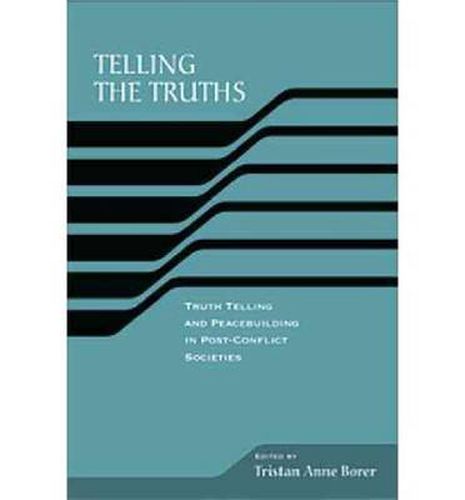Readings Newsletter
Become a Readings Member to make your shopping experience even easier.
Sign in or sign up for free!
You’re not far away from qualifying for FREE standard shipping within Australia
You’ve qualified for FREE standard shipping within Australia
The cart is loading…






Confronting the past has become an established norm for countries undergoing transitions from violence to peace, from authoritarianism to democracy, or both. This book draws from two bodies of literature-peace building and transitional justice-to examine whether truth-telling mechanisms can contribute to sustainable peace and, if so, how and under what conditions. The authors approach these questions by examining whether truth telling contributes to the following elements, all of which are deemed to be constitutive of sustainable peace: reconciliation, human rights, gender equity, restorative justice, the rule of law, the mitigation of violence, and the healing of trauma.
While the transitional-justice literature appears to have grasped the importance of truth telling for securing sustainable peace, few studies have undertaken empirical analysis and evaluations of the long-term impact of such mechanisms. Contributors to this interdisciplinary volume-from the fields of political science, law, anthropology, psychology, philosophy, and theology-accomplish that by closely examining how societies emerging from violence must in some way examine, acknowledge, and account for violence committed in the past in order to move forward.
$9.00 standard shipping within Australia
FREE standard shipping within Australia for orders over $100.00
Express & International shipping calculated at checkout
Confronting the past has become an established norm for countries undergoing transitions from violence to peace, from authoritarianism to democracy, or both. This book draws from two bodies of literature-peace building and transitional justice-to examine whether truth-telling mechanisms can contribute to sustainable peace and, if so, how and under what conditions. The authors approach these questions by examining whether truth telling contributes to the following elements, all of which are deemed to be constitutive of sustainable peace: reconciliation, human rights, gender equity, restorative justice, the rule of law, the mitigation of violence, and the healing of trauma.
While the transitional-justice literature appears to have grasped the importance of truth telling for securing sustainable peace, few studies have undertaken empirical analysis and evaluations of the long-term impact of such mechanisms. Contributors to this interdisciplinary volume-from the fields of political science, law, anthropology, psychology, philosophy, and theology-accomplish that by closely examining how societies emerging from violence must in some way examine, acknowledge, and account for violence committed in the past in order to move forward.